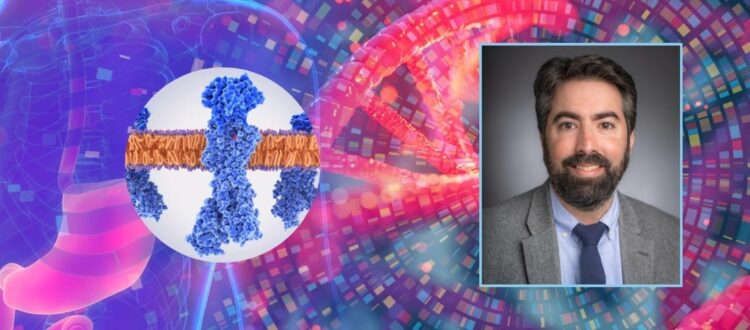2022 Seed Grant Recipient Dr. Nilay Sethi’s Team Reports Major Progress in Research
In 2022, the Gastric Cancer Foundation awarded a seed grant to Dr. Nilay Sethi to explore an innovative therapeutic approach for gastric cancer. One year into the grant, his research has shown promising results.
Dr. Sethi is a specialist in medical oncology and an assistant professor at Harvard Medical School, as well as a physician at Dana Farber/Harvard Cancer Center, where he focuses on gastrointestinal cancer.
In the past year, Dr. Sethi has made great strides towards positively identifying patients who may be uniquely suited for a novel therapy. His research has focused on patients who could be receptive to a drug that has been approved for treatment of other cancers.
Specifically, Dr. Sethi’s research centers on identifying gastric cancer patients who could benefit from a treatment that inhibits an enzyme that cancer cells use to repair themselves. By blocking this enzyme, called PARP, the treatment can lead to the death of cancer cells. PARP inhibitor drugs have been previously FDA-approved for treatment of ovarian and breast cancers, and recent research has demonstrated that they show potential in gastric cancer.
Dr. Sethi believes that patients who are deficient in another biomarker called homologous recombination (HR) may be especially receptive to PARP inhibition. Research suggests that nearly a quarter of gastric cancer patients may be functionally HR deficient, so if effective, PARP inhibitor treatments could be used for this substantial subset of patients. Dr. Sethi’s team has focused on successfully developing a diagnostic tool that can accurately identify patients with genuine HR repair deficiencies – a hallmark of the project so far.
The team then analyzed data from patients that were both responsive and non-responsive to a treatment that combined platinum chemotherapy, a standard of care for most gastric cancers, with PARP inhibitors. Using their tool, they identified patients who were likely to have HR deficiency, and compared the two groups. The goal was to determine whether positive response to treatment was more common in patients who had a high likelihood of HR deficiency. The results were encouraging.
The team then used cell line models to validate these results in controlled conditions. “What we saw was that those cell lines that had true HR deficiency, as detected by the mutation signature analysis, were more sensitive to PARP inhibitors and specific chemo treatments,” Dr. Sethi said.
Looking ahead, Dr. Sethi envisions conducting clinical trials with PARP inhibitors in gastric cancer patients based on their unique DNA-repair profiles.
Receiving this seed grant has been essential in advancing the project, Sethi says. “To get traditional funding from the government or the NIH, you need a lot more data to convince them that it is worthy of pursuing,” he explained. “We have been able to generate novel lines of inquiry in our lab, and I don’t believe that I would have been able to do it without this funding.”

